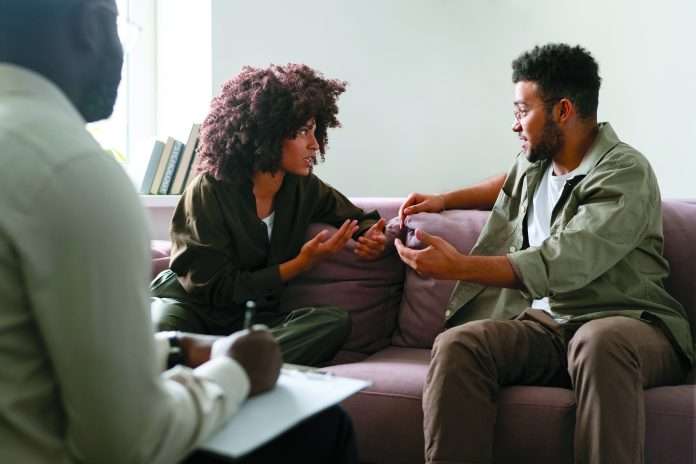There are many approaches to couples therapy such as Gottman Method, Emotionally Focused Therapy, and IMAGO to name a few. The decision to seek couples therapy requires evaluating your relationship and your willingness to work through challenges. The following are some key signs that you may be ready:
1. Communication Issues – Do you struggle to express your feelings without arguing or shutting down? Are there unresolved conflicts that keep resurfacing?
2. Feeling Disconnected – Has the emotional or physical intimacy in the relationship declined? Do you feel like roommates rather than partners?
3. Recurring Problems – Are you stuck in repetitive arguments or unhealthy patterns? Have individual efforts to fix these issues failed?
4. Life Changes or Stressors – Have recent events (moving, new baby or job) put a strain on your relationship?
5. Trust Issues – Has there been a betrayal such as an infidelity or broken promises? Are you struggling to rebuild trust?
6. Desire to Improve – Are you both willing to put in the effort to strengthen the relationship? Do you believe the relationship has potential for growth?
7. Mutual Commitment – Are you both open to exploring therapy, even if one of you is more hesitant at first?
8. Individual Challenges Impacting the Relationship – Are personal issues such as stress, trauma, or mental health affecting how to connect with each other?
If you relate to some of the above, couples therapy could be beneficial. Even if you’re unsure, seeking therapy to explore some of these concerns and set goals can be a proactive step.
The following are some signs that couples therapy could be unproductive or even counter-productive:
1. Lack of Commitment to Change – One or both of you are not genuinely willing to work on the relationship. Going to therapy just to ‘check the box’ or appease the other.
2. Blaming Without Accountability – If either of you is solely focused on blaming the other without reflecting on your own role in the relationship’s challenges.
3. Unwillingness to Communicate Honestly – If either of you are unwilling to be vulnerable, open, and honest, your therapist won’t have a full picture to be able to help you.
4. Hidden Agendas – If therapy is being used as a way to justify leaving the relationship rather than to repair it, the process won’t be effective.
5. One of You is Being Forced into Therapy – If one of you does not want to attend or doesn’t believe in the process, lack of engagement can hinder the process.
6. Ongoing Abuse – Couples therapy is not the right setting to address physical, emotional, or verbal abuse. These situations require specialized interventions to ensure safety and require individual therapeutic attention.
7. Unresolved Individual Issues – If personal issues such as active addiction or untreated mental health conditions are dominating the relationship dynamics, individual therapy is a better starting point before engaging couples therapy.
8. Timing is Off – If there are active external factors like intense work stress, a recent traumatic event, or other life circumstances, it will leave little energy or focus for therapy. It may be better to wait.
9. Desire for Separation – If one of you has already decided to end the relationship and sees therapy as a formality, it will obviously prevent any genuine engagement.
Being ready for couples therapy requires mutual willingness and effort, but readiness can evolve with time and self-reflection.

















